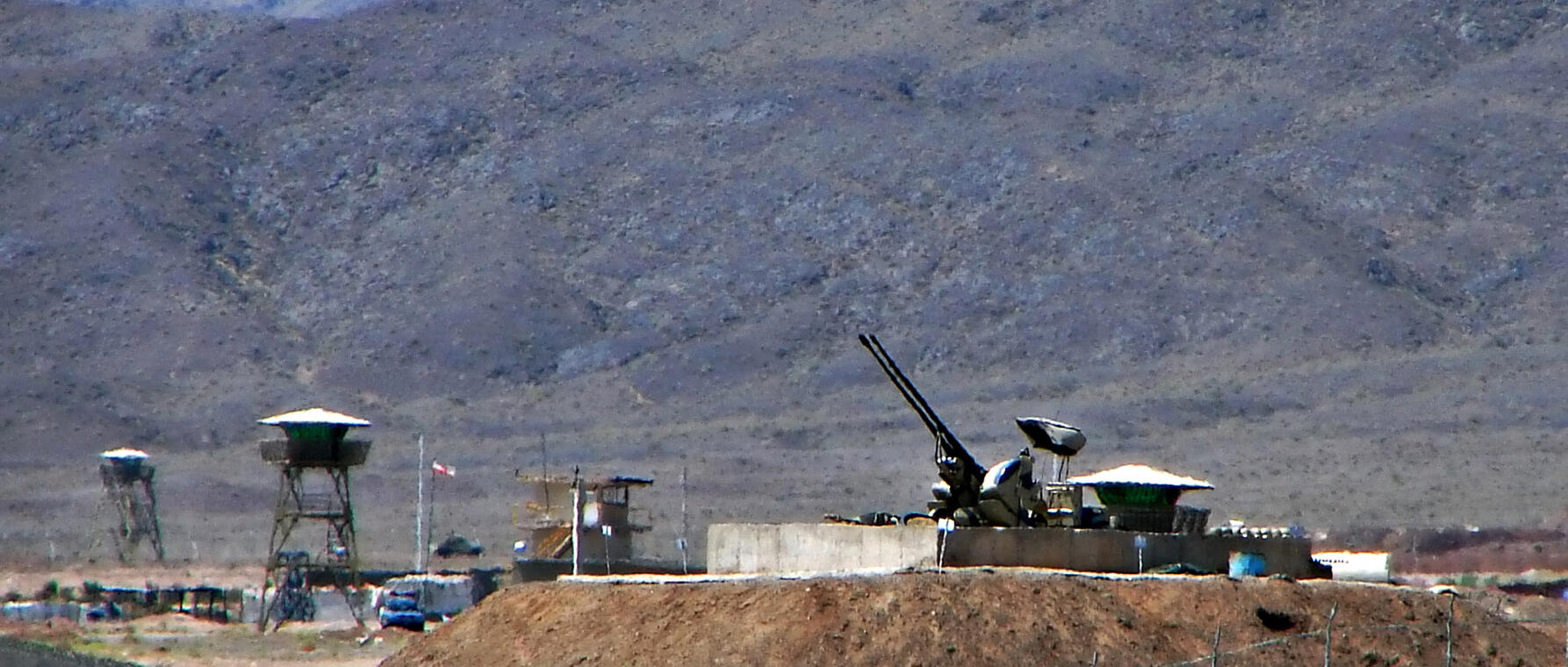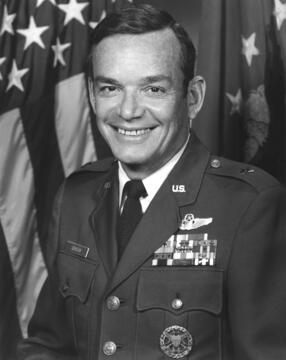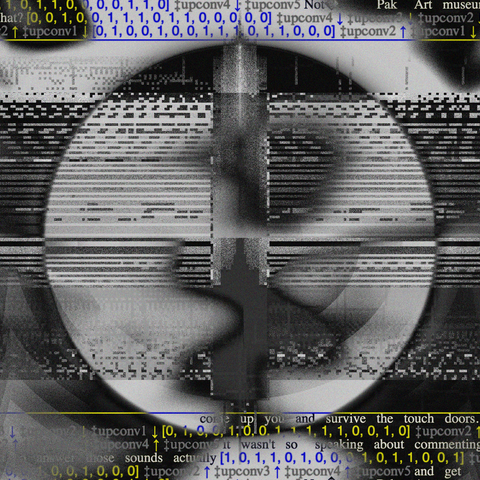Will US Strikes Stop Iran’s Nuclear Program—Or Make It Worse?
Negotiator of landmark arms agreement worries use of force may set back nonproliferation efforts


As deputy director for international negotiations, Plans and Policy Directorate, Organization of the US Joint Chiefs of Staff, Brigadier General (Ret.) Lee Denson, PhD ’67, led the military team that negotiated the landmark 1987 Intermediate-Range Nuclear Forces Treaty between the United States and the Soviet Union. A West Point graduate and combat veteran whose decorations include the Defense Distinguished Service Medal and Distinguished Flying Cross, General Denson taught international politics at the US Air Force Academy and also served as the director of academic affairs at the National War College. In this wide-ranging conversation, he reflects on the recent US military action against Iran, its broader geopolitical implications, and the enduring value of arms control.
Where were you when you heard about the strikes on Iran, and what went through your mind?
I was in our family room watching the news, probably around 8:30 p.m. Eastern Time. An announcement came on saying we had attacked Iranian nuclear sites. I was surprised—and I’ll confess, disappointed—but I decided to wait and see what the results were.
How effective do you think the strikes were?
President Trump said the Iranian sites had been “obliterated.” The chairman of the Joint Chiefs of Staff used much more measured words.
To penetrate deeply enough at the Fordow enrichment facility—maybe 290 feet through reinforced concrete—we would need more than one “bunker buster,” probably two or three. The Iranians had reportedly been developing stronger concrete for that very site, which housed most of their centrifuges.
I saw satellite photos showing three blast holes close together but not perfectly aligned. Depending on the underground impact, we may not have reached all the way to the active centrifuges. Also, trucks had reportedly evacuated scientists and possibly as much as 900 pounds of enriched uranium from the Isfahan research complex in advance of the attack.
So yes, we likely did some damage, but I wouldn’t go so far as to say we obliterated their enrichment capability.
How much of a setback was the attack for Iran’s enrichment program?
One of the big questions is how close Iran was to weaponizing enriched uranium. To build a deliverable nuclear weapon, uranium must be enriched to about 90 percent U-235. Intelligence reports, including from Director of National Intelligence Tulsi Gabbard, suggested that Iran hadn’t yet decided to build a weapon and was some time away from having one. So it’s hard to say definitively how much of a setback this is—it’s likely months or even years, depending on how much material they evacuated and how much of their infrastructure was destroyed.
The terms of the 2015 Joint Comprehensive Plan of Action (JCPOA) that the US negotiated with Iran sharply capped Iran’s uranium enrichment and dramatically reduced its enriched uranium stockpile for 15 years. It also called for the repurposing of prominent enrichment facilities and gave the International Atomic Energy Agency enhanced access to Iranian nuclear sites. What did you think of the deal?
I’ve had a lot of arms control experience. We had nine active negotiations that I was in charge of advising the Joint Chiefs of Staff on for a couple of years. Some of them were bilateral with the Soviets, and others were multilateral, and they covered all sorts of weapons and forces and the like. In all my time, I’ve never seen an agreement as one-sided or as intrusive as the JCPOA. [US President Ronald] Reagan used to say, “Trust, but verify,” and we in the military took verification damned seriously. So did that agreement with Iran.
[US President Ronald] Reagan used to say, “Trust, but verify,” and we in the military took verification damned seriously. So did [the 2015 arms control agreement] with Iran.
Critics of the deal said that it merely “kicked the can” 15 years down the road, that even with expanded IAEA access the Iranians could still have secretly developed a nuclear weapon, that funds generated from sanctions relief could have been used to support Iranian proxies like Hezbollah, and that it didn’t address Iran’s ballistic missile program. Did they have a point?
Yes, the agreement was limited to 15 years, but that’s common in arms control. Political circumstances change. Successful agreements, like those with the Soviets that addressed strategic weapons, were renegotiated and updated. Honestly, I don’t know that we could’ve gotten more. Iran accepted a very one-sided deal because of the intense pressure it was under. For many years, the inspectors were confident they were seeing all enrichment activity and that it was kept within agreed-upon levels.
The US withdrew from the deal in 2018, and Iran resumed activities that had been prohibited under the JCPOA. Should we have walked away?
I was shocked when we pulled out. Once we left the agreement, Iran likely felt free to proceed however it wished. Reports of uranium enriched to 60 percent are concerning. It’s possible they’ve inched closer to weaponization or are trying to increase leverage in future negotiations.
When you were negotiating agreements between the US and the Soviet Union, there were those in the Pentagon who were skeptical of diplomatic efforts at arms control. Your side prevailed, and one result was the landmark Intermediate-Range Nuclear Forces Treaty. Can you talk about the value of pursuing long-term peace through negotiation?
It’s one more tool in the foreign policy toolbox. Like foreign aid for global health programs, arms control costs very little and has enormous potential upside. It’s fallen out of favor, particularly on the right. I think that’s a shame. During my time in the military, we took it seriously.
Do you think the strikes on Iran will make future nonproliferation efforts more difficult?
I do. If Iran was on the fence about building a bomb, I suspect this has pushed them off it. Rogue states—those without strong alliances—see nuclear weapons as a deterrent against regime change. North Korea is a prime example. Iran may go the same way, slowly and stealthily, perhaps even signaling that they now have a nuclear capability.
What does this signal to other countries?
I’m afraid it encourages proliferation. If you’re isolated and under threat, the lesson is: get a bomb. It’s not the message we want to send.
If you’re isolated and under threat, the lesson is: get a bomb. It’s not the message we want to send.
Is it possible to return to negotiations?
In time, yes. President Trump probably doesn’t want a war. He had started negotiations again to make the agreement with Iran stronger, but he began with a very maximalist position: “Well, you can’t have any enriched uranium at any level. You’ll have to surrender what you have now. And a consortium will make sure that maybe you get some to run nuclear reactors for energy purposes and/or for medical research purposes.” Sometimes that happens in negotiations, and so they take two years or more—or longer—to complete.
Iran is already retaliating in measured ways. They’ve warned of missile strikes but are forewarning US troops. It seems performative—meant to show resolve without provoking escalation. If Iran’s response remains largely symbolic—like the missiles it launched at the US air base in Qatar, which were mostly intercepted with no Americans hurt—we should let it subside, keep sanctions in place, and see if Iran returns to the table in three to six months.
Final question: As someone who taught international politics to future leaders and negotiated arms control agreements, what advice would you give US officials about how to proceed in the Middle East?
Both President Trump and Secretary Rubio said they have no quarrel with the Iranian people—just the regime’s nuclear ambitions. Iran’s support for Hezbollah and Hamas has been weakened by the conflict with Israel. I believe the path forward lies in encouraging Israel to align more closely with the Arab Gulf states, perhaps to jointly fund Gaza’s reconstruction and support new political leadership there.
Ultimately, the only way for Israel to achieve lasting peace is through a two-state solution. I saw this back in 1976 when I traveled to Israel with the National War College. [Former Israeli Prime Minister] Shimon Peres made a lasting impression on me—he understood the necessity of coexistence. That’s still true today.
Get the Latest Updates
Join Our Newsletter
Subscribe to Colloquy Podcast
Simplecast





